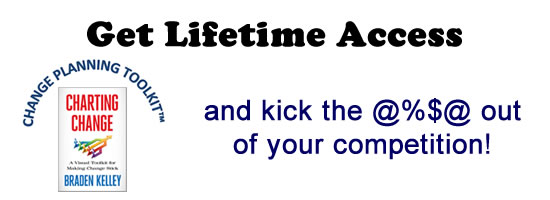One Simple Interview Question for Hiring Innovators

Anyone can claim to be innovative, but this is what separates those who want to be from those who are.
Whether you’re hiring a partner, sizing up a colleague, or just trying to get to know someone, asking a very simple question will tell you more about how innovative the person is than virtually anything else you can ask.
Innovation Is Not Just About Talent
I have to admit at the outset that when I hire senior-level people whom I expect to be innovative it is never just because of talent, brains, or even skills. Figuring out if they have the competency to do the job is actually pretty easy (see my article “Hire the Best People with These 6 Interview Questions“). What is infinitely harder to judge is the degree to which they are truly innovative and committed to their ideas.
The challenge, of course, is that many people can make a great first impression–but end up being someone totally different when you have to live with them eight to 12 hours a day. I’ve seen the strain that the wrong partnership can have. What starts off as a blissful union can turn into a nightmare when the underlying values and ambitions of partners don’t align. Bringing on board a senior-level individual in a small business is crucial and will have a deep, long-term impact on your company. And partnerships are so hellish to untangle that companies can be ruined in the process. So you really need to get it right from the outset.
But you can only assess compatibility and a commitment to innovation through experience, right? Wrong! You can get immense insight into a person’s drive, commitment, innovative ability, and even loyalty by asking one utterly simple question. And here’s the key: The actual content of his or her answer is interesting but irrelevant! What counts is how someone answers the question. In fact, this technique is so powerful that I’ve often used it when talking to people I’ve just met to get a sense for who they are and how they operate. Yes, I’m not much for small talk. Let’s just dive into the deep end!
The Commitment to Innovation Lie Detector Test
I call this my commitment to innovation lie detector test. It’s not foolproof, but it’s good enough to give you what you need in order to understand how committed someone is to achieving his or her ambitions rather than just dreaming about them.
First, here’s the question I lead with (Stick with me after you read it, because there is a plot twist here that’s critical if you’re going to use this technique effectively):
“What are three things you have not yet accomplished that you would never forgive yourself for not having accomplished during the remainder of your life?”
Before you read on, stop and make a mental list of those three things for yourself. Got them? Now read on.
Here’s the twist. It’s a follow-up question. OK, I know I said one question, but I wanted to set you up in the same way I’d set this up in an interview. I don’t want the candidate to know that I’m going to ask a follow-up because it’s the answer to the follow-up that I care most about.
Frankly, within this context, the three things someone has listed are interesting but meaningless to me. Not because they’re unimportant, but because we’re all entitled to have whatever dreams of grandeur we want. It’s the intentional strategies and tactics to achieve them that I want to hear about–that’s what tells me who someone really is, how well he or she deals with uncertainty, how sincere the person is about his or her ambitions, and ultimately how innovative the person is.
We can all dream; coming up with new ideas is simple. The world does not lack in dreamers, but some of us actually do something about those dreams. And, by the way, doing something isn’t just about making a decision; those are easy too. Anyone can decide, but just because you’ve decided to start a business, become rich, get married, or have kids doesn’t make you an entrepreneur, a millionaire, a good spouse, or a good parent. It’s what you do after the decision that counts.
So here’s the follow-up question:
“Specifically, what have you done in the past 30 days to realize each of those three ambitions?”
What I’m looking for are specifics. If you respond immediately with actual tasks, projects, and measurable, tangible efforts, then I’m impressed. I want to see the numbers! How much are you doing? How often? If you have to think about it, then I’m worried, because, after all, you just told me that these were the three most important things in your life. And you’re not doing anything specific to realize them? Really?
Anything less than direct quantifiable and tangible effort to achieve these three ambitions tells me that the person I’m talking to lacks adequate discipline and self-direction. Most important, it tells me that this is someone who isn’t accustomed to doing the hard work it takes to realize his or her dreams. Instead, the person expects that just deciding on having the dream is sufficient. By the way, there’s a name for that. It’s called entitlement, and it’s the last thing I want from someone on my team, especially a senior-level hire! I want the person to know what it means to earn success rather than expecting it to be handed over!
Entitlement is what destroys relationships and partnerships. Entitled people simply expect to be right, are regularly frustrated and blame others for their shortcomings, rarely take ownership of their actions, anger, temper, and reactions to others, have a short fuse and get exasperated easily, and are not transparent–in short they make lousy partners because they’re usually too busy arguing about who’s right rather than what’s right. Innovative people don’t care about who’s right; they care about what’s right.
My suggestion is that you start using this technique not only in interview settings but with your interpersonal relationships as well. You’ll find that it provides an incredibly powerful way to determine if your ambitions and commitment to a shared vision of the future are aligned with a colleague, friend, or partner or your spouse.
Oh, by the way, you did have quantifiable and tangible activities that supported the three items you said would never forgive yourself for not accomplishing, right? Please, tell me you did.
This article was originally published on Inc.
Wait! Before you go…
Choose how you want the latest innovation content delivered to you:
- Daily — RSS Feed — Email — Twitter — Facebook — Linkedin Today
- Weekly — Email Newsletter — Free Magazine — Linkedin Group
 Tom Koulopoulos is the author of 10 books and founder of the Delphi Group, a 25-year-old Boston-based think tank and a past Inc. 500 company that focuses on innovation and the future of business. He tweets from @tkspeaks.
Tom Koulopoulos is the author of 10 books and founder of the Delphi Group, a 25-year-old Boston-based think tank and a past Inc. 500 company that focuses on innovation and the future of business. He tweets from @tkspeaks.
NEVER MISS ANOTHER NEWSLETTER!
LATEST BLOGS
Four ways you can ensure employees take accountability for their work
One of the most important driving factors for any successful business is a high-performing team. Having people working for you…
Read MoreWhat is digital upskilling and why is it important?
Photo by Annie Spratt on Unsplash In a world of business that never stands…
Read More


